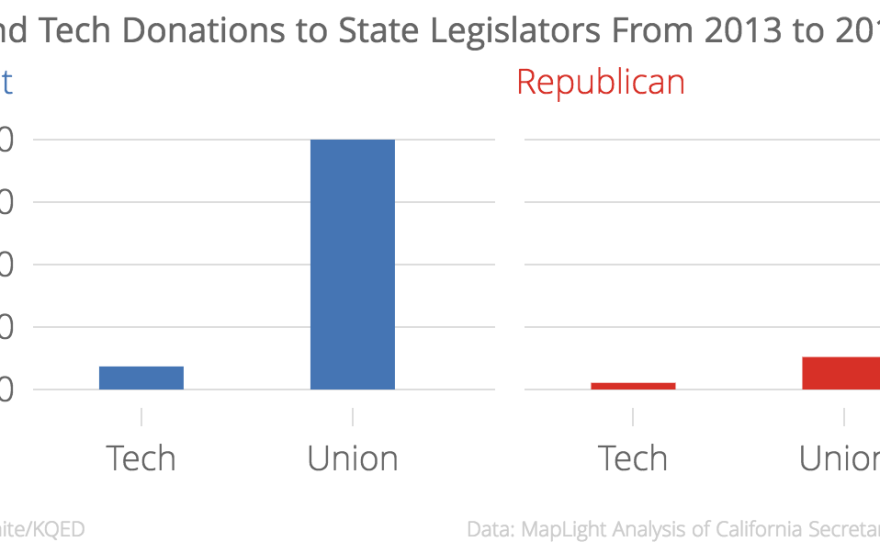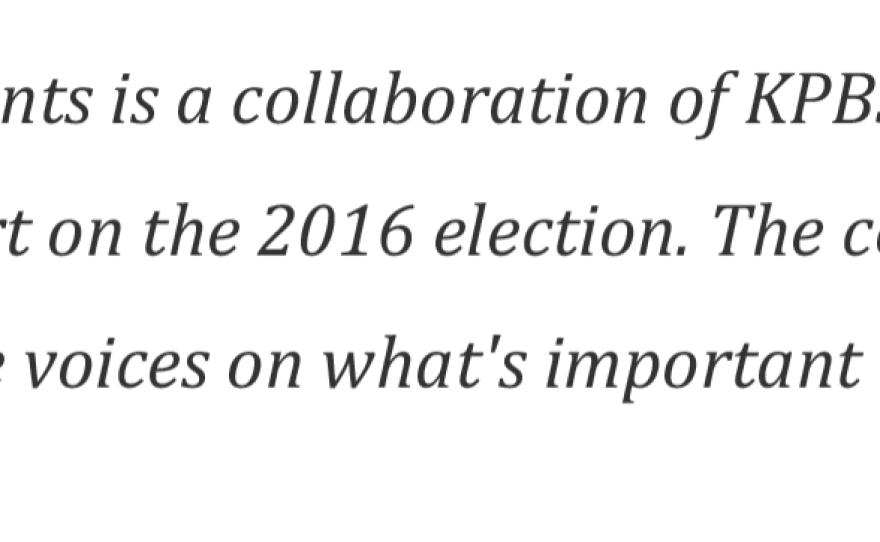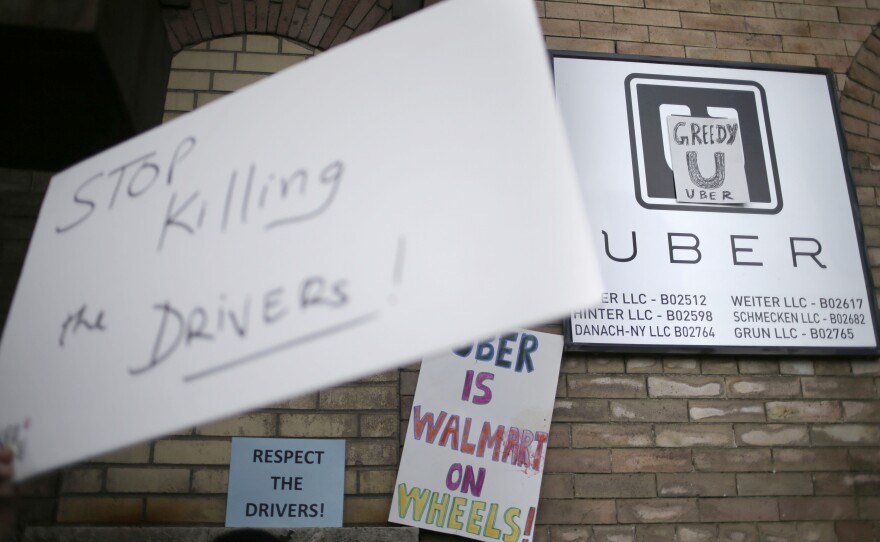Organized labor has always counted on Democrats’ support for issues like raising the minimum wage and paid sick leave. But in the new gig economy, run on apps for companies like Uber and TaskRabbit, the very nature of work is changing. And the new tech-driven workplace could put some Democrats at odds with their friends in the labor movement.
Food service workers, janitors and other low-wage employees staged a protest recently across the street from the headquarters of the tech company Intel in Santa Clara.
It was a classic labor action over traditional issues, like wages, benefits and working conditions. The demonstration was organized by Silicon Valley Rising. The group is trying to give low-wage workers here more clout and a bigger share of profits in the super successful innovation economy.
Even though many of the demonstrators worked for a contractor that runs Intel’s cafeteria, organizer Derecka Meherns is pushing Intel to allow these workers to organize a union. Meherns says tech companies like Intel have tremendous resources to influence this — and a wide range of public policy issues affecting workers.
“They can put those resources into campaigns and an army of lobbyists that can walk the halls of every city hall, county, state governments — it’s a resource working people don’t have,” Meherns says.
But organized labor is hardly an underdog. Analysis by Maplight shows that in the past two election cycles, unions gave state legislators nearly $6 million in political contributions — that’s 10 times more than the largest tech firms here. But Doug Bloch, political director for the Teamsters union, sees the tech sector gaining influence in Sacramento.

After an outcry over low wages and split shifts for drivers of shuttle buses for companies like Google and Apple, the Teamsters worked with those companies to join the union and raise their wages. But given the complexity of the new “gig economy” and the changing nature of work, Bloch wonders if Democrats will start wobbling on some issues labor cares about.
“I think we have Democrats who are with us when it comes to bus drivers, food service workers and security officers,” Bloch said. “And when we go talk to them about supposed independent contractors driving for Uber, it’s a different story.”
To some labor unions, Uber — the transportation upstart that’s crushing the taxi industry — is corporate enemy number one. They, and other app-based services like TaskRabbit, say they don’t have employees — just contractors who set their own hours and get “gigs” via customers using apps.
But Teamsters lobbyist Barry Broad doesn’t buy the notion that these aren’t employees. He goes so far as to compare them to African-American sharecroppers after the Civil War.
“They’re working in a field,” says Broad, sitting in his modest office near the state Capitol. “The field is an urban area where people need rides. And Uber allows as many people into the field to pick crops, and Uber says this is how much you’re getting per pound. They may not even be getting the minimum wage.
“Frankly, their system is from our perspective perfectly designed for exploitation of low-wage workers.”
This friction between labor and tech could create conflict for legislators, especially Democrats. Lt. Gov. Gavin Newsom says organized labor needs to be nimble. Sitting in his office in a SoMa San Francisco startup incubator, Newsom says “the tech genie is out of the bottle and you can’t stuff it back in.”
“Something big is happening and we’re going through this radical shift in real time, yet we have work rules and labor rules that have been inflexible that were designed for a world that no longer exists,” Newsom said. The former San Francisco mayor has close ties to the tech industry, but is also considered a strong ally of labor. And he thinks unions will be making a mistake if they resist adapting to the changing workplace.
“If the attitude is, ‘No, we’re just going to deny it and everything is going to be fine,’ labor and the middle class are in trouble. I’m rooting for labor.”
Democratic Assemblywoman Lorena Gonzalez from San Diego understands that the old workplace rules don’t always apply anymore. She’s sponsoring legislation that would extend rights and a safety net to workers in the gig economy — without involvement from unions.
Her bill — AB1727 known as the “California 1099 Self-Organizing Act” — will be heard in the Assembly Labor Committee later this month.
Carl Guardino of the Silicon Valley Leadership Group says the time is right for this conversation about the gig economy, but he worries about stifling the innovation economy, or what he calls “the goose that lays the golden egg in California.”
“Rather than imposing laws on people and companies, let’s sit down and try to figure out what’s best for all concerned,” Guardino says.
As of now anyway, there’s not an app for finding common ground.
Search below to see how much companies and their employees donated to state legislators during the last two election cycles.
Methodology: MapLight analysis of campaign contributions to the candidate-controlled committees associated with current members of the California Legislature during the 2013-2014 and 2015-2016 election cycles. Contributor figures are based on itemized records, aggregated by affiliate organization for political action committees. Totals include donations both from organizations and employees of those organizations. All numbers are based on latest data made available by the California secretary of state as of April 4, 2016.







